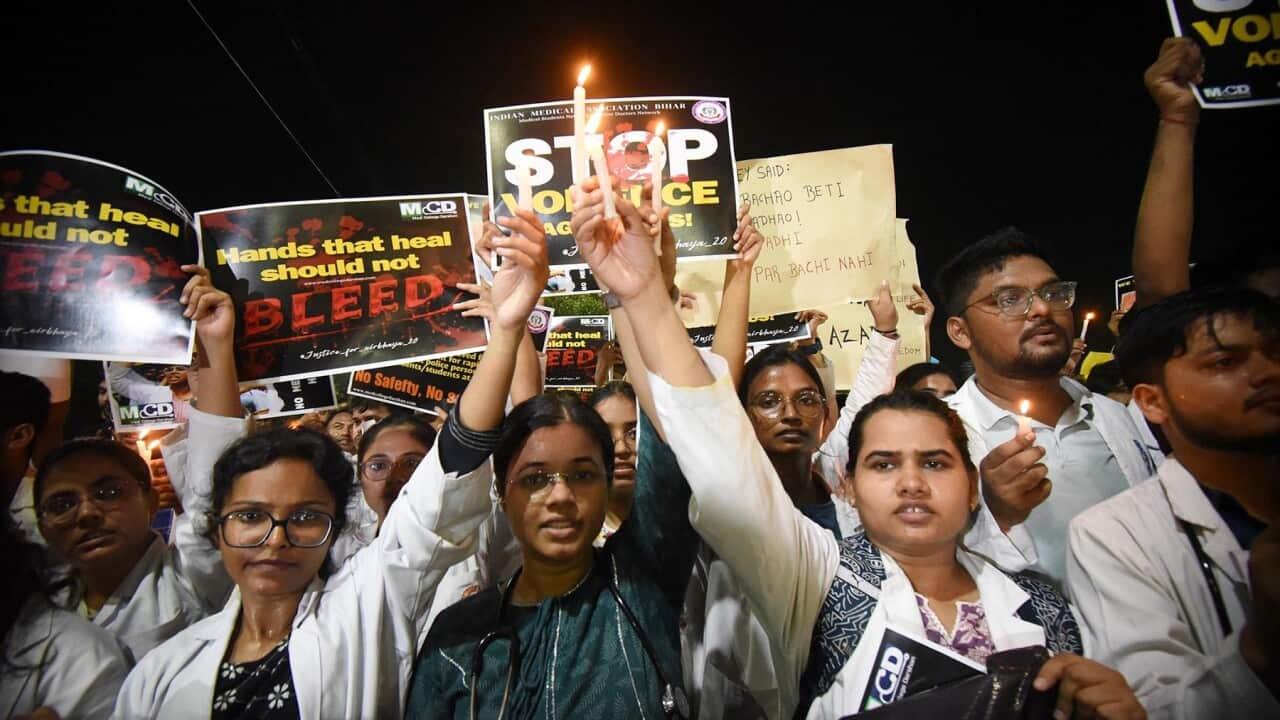TRANSCRIPT:
Protesters have taken to the streets after the brutal rape and murder of a 31 year old trainee doctor in the West Bengal city of Kolkata last week.
They are angry at the failure of the system to confront a rising tide of violence against women.
The slain doctor’s aunt says her niece was living the dream.
“She was aiming for a gold medal in her MD (Doctor of Medicine degree) …this was her dream. I have said this several times that we were planning her wedding later this year in November. … In her last conversation around 11:15 pm, she told her parents to eat dinner, have their medicines and sleep, and assured them that she was okay. This was the last conversation with her."
Her father, who remains unnamed, says he is baffled that no one at the hospital noticed his daughter had disappeared for seven hours.
"Her mother kept calling her continuously (since morning) but she was dead by then. The most painful thing is that from 3 a.m. (2130 GMT) to 10 a.m. (0430 GMT), no one cared to ask the whereabouts of an on-duty doctor. This is hurtful.”
The aunt claims hospital administrators tried to hide the fact that her niece had been murdered.
“(After the incident) the assistant superintendent called my niece’s mother and told her that her daughter was not feeling well and asked her to reach out to the hospital. The superintendent hung up when her mother inquired if her daughter had fever. When her mother called him again and asked about her daughter, he said ‘am I a doctor? We are taking her to the doctor and only the doctor can tell about her condition’ and he hung up again. On the third call he confirmed if the parents were reaching the hospital and finally, he said, ‘your daughter has committed suicide’.”
The violent crime in Kolkata has drawn parallels to the notorious 2012 Delhi gang rape and murder of a 23-year-old student on a moving bus.
Despite sweeping changes after that horrific case, campaigners say little has changed.
Indian lawyer Shobha Gupta represented a Muslim woman brutally gang raped during the 2002 Gujarat riots.
She says widespread societal and judicial change is needed to combat sexual violence in India.
"In our society what we are seeing in our country, at least we can refer to that it’s increasing and we are seeing the inhuman... the brutality which causes… which is involved in such crimes is increasing day-by-day. This one (Kolkata rape-murder case) is much more harsher (harsh) than what we were hearing before. Now why, as a society we have failed to address that? It’s not only police, police and the delay in the whole process does give the advantage to these kind of people."
This latest attack has not only prompted demonstrations calling for tougher laws.
India's medical professionals have also started a 24-hour strike, which involves the withdrawal of non-emergency services.
One protester, Dr Kanika Sahani, says they want a written assurance from the government that they will be provided with protection against assault.
"All the doctors, nurses, and medical staff work for the welfare of the patients, we are working in these times as well. But we cannot handle violence or threats to us or our children. We will not tolerate this. We will not stop until the Central Protection Act (CPA) comes into force."
A police volunteer has been arrested in connection to this latest case, and it has been handed over to the central agency of investigation.
Meanwhile the father of the medical trainee murdered in Kolkata says he is drawing strength from protesters seeking justice for his daughter.
"All the protesters who are out on the streets demanding justice are like my sons and daughters. I feel they have now become my children. My daughter is gone but millions of sons and daughters are now with me. This has given me a lot of strength and I feel we will get something.”













